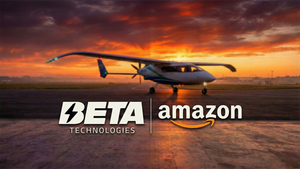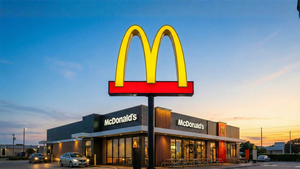
The performance of consumer discretionary businesses is closely linked to economic cycles. Over the past six months, it seems like demand trends are working against their favor as the industry has tumbled by 7%. This drawdown was discouraging since the S&P 500 stood firm.
A cautious approach is imperative when dabbling in these companies as many also lack recurring revenue characteristics and ride short-term fads. With that said, here are three consumer stocks that may face trouble.
Tapestry (TPR)
Market Cap: $17.74 billion
Originally founded as Coach, Tapestry (NYSE: TPR) is an American fashion conglomerate with a portfolio of luxury brands offering high-quality accessories and fashion products.
Why Does TPR Give Us Pause?
- 1.6% annual revenue growth over the last two years was slower than its consumer discretionary peers
- Constant currency growth was below our standards over the past two years, suggesting it might need to invest in product improvements to get back on track
- Estimated sales growth of 2.2% for the next 12 months is soft and implies weaker demand
Tapestry’s stock price of $84.87 implies a valuation ratio of 16.6x forward P/E. To fully understand why you should be careful with TPR, check out our full research report (it’s free).
Light & Wonder (LNW)
Market Cap: $7.97 billion
With names as crazy as Ultimate Fire Link Power 4 for its products, Light & Wonder (NASDAQ: LNW) is a gaming company supplying the casino industry with slot machines, table games, and digital games.
Why Do We Think Twice About LNW?
- Sales were flat over the last five years, indicating it’s failed to expand its business
- Projected sales growth of 9.7% for the next 12 months suggests sluggish demand
- Low returns on capital reflect management’s struggle to allocate funds effectively
At $93.80 per share, Light & Wonder trades at 16.1x forward P/E. If you’re considering LNW for your portfolio, see our FREE research report to learn more.
Carnival (CCL)
Market Cap: $33.11 billion
Boasting outrageous amenities like a planetarium on board its ships, Carnival (NYSE: CCL) is one of the world's largest leisure travel companies and a prominent player in the cruise industry.
Why Does CCL Fall Short?
- Large revenue base makes it harder to increase sales quickly, and its annual revenue growth of 9% over the last five years was below our standards for the consumer discretionary sector
- Estimated sales growth of 3.1% for the next 12 months implies demand will slow from its two-year trend
- Push for growth has led to negative returns on capital, signaling value destruction
Carnival is trading at $25.44 per share, or 12.8x forward P/E. Read our free research report to see why you should think twice about including CCL in your portfolio.
High-Quality Stocks for All Market Conditions
Donald Trump’s victory in the 2024 U.S. Presidential Election sent major indices to all-time highs, but stocks have retraced as investors debate the health of the economy and the potential impact of tariffs.
While this leaves much uncertainty around 2025, a few companies are poised for long-term gains regardless of the political or macroeconomic climate, like our Top 6 Stocks for this week. This is a curated list of our High Quality stocks that have generated a market-beating return of 183% over the last five years (as of March 31st 2025).
Stocks that made our list in 2020 include now familiar names such as Nvidia (+1,545% between March 2020 and March 2025) as well as under-the-radar businesses like the once-micro-cap company Kadant (+351% five-year return). Find your next big winner with StockStory today for free. Find your next big winner with StockStory today. Find your next big winner with StockStory today





